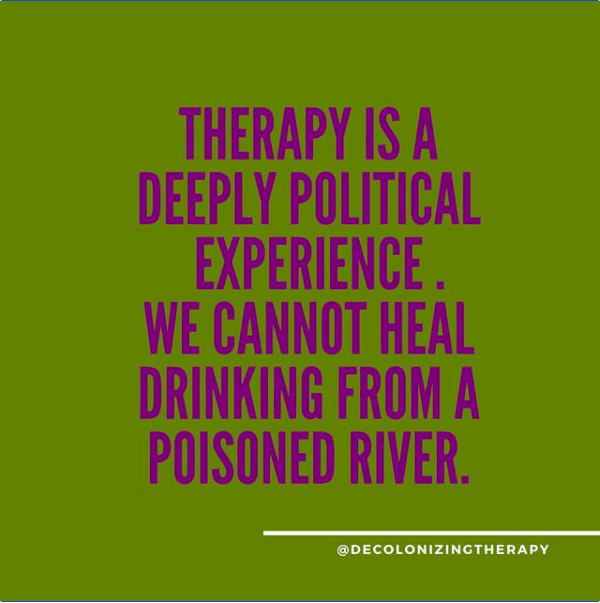May 3 – 9 is Mental Health Week, and carya’s Inclusivity Committee explores the relationship between mental health, oppression, and community, and highlights ideas around decolonizing mental health. We encourage you to read and reflect with the questions below.
Mental health systems often place healing in the hands of the individual. Medication, coping skills, and therapy can work for some, many people end up feeling like something is missing. We might feel like someone else is defining what it means to be sick and what it means to be healthy. This can make us feel like things are not improving, and it’s somehow our fault for having mental health issues.
This is particularly true for groups impacted by oppression including Black, Indigenous, and people of colour, disabled and LGBTQIA2S+ people, immigrants, and low-income people.
Jennifer Mullan, founder of Decolonizing Therapy, states;
“I feel like so much of the depression, of the anxiety, of the constant state of trauma that we are going through, this complex developmental trauma, this concept of fight, flight, freeze response that we’re in are due to systems of oppression – are due to these overt and covert acts of racism and colonization and the effects of colonization on our minds, bodies and spirits.”

Ideas around decolonizing mental health are informed by Indigenous decolonial knowledge, and acknowledge the far-reaching impacts of colonization. Mimi Khuc, a writer, scholar, and teacher who specializes in Asian American mental health, describes this as a third space. The third space is mindful of not appropriating Indigenous knowledge, but also creating something outside of Western medicine. This can be beneficial for everyone, not just people in oppressed communities, because we are all impacted negatively by systems of oppression.
Moving toward decolonizing mental health can mean different things to different people. Some common approaches include putting mental health back into the hands of communities. Rather than having “experts” determine what it means to be mentally well, communities decide this for themselves and this is not done in a vacuum. Another key area of this approach is exploring how cultural roots, or disconnection from cultural roots, can impact one’s wellbeing.
This is more than just cultural competency. It’s moving into a space where it feels possible to explore ancestral connections, cultural movements, and intergenerational trauma. In spaces working towards decolonizing mental health, oppression is named as a cause of mental health issues and there is space to explore how oppression, displacement, and colonization impact one’s day-to-day mental wellness.
This moves beyond individual therapy and into community spaces, peer relationships, and collective movements.
Questions for reflection:
- What came up for me when I was reading this?
- Was there anything that inspired me?
- Was there anything that brought up feelings of discomfort, sadness, or anger?
- How does what I just read relate to my work?
References
To learn more:
Fireweed Collective: https://fireweedcollective.org/
Decolonizing Therapy: https://www.drjennifermullan.com/
Irresistible podcast (Formerly known as healing justice podcast, a virtual practice space at the intersection of collective healing and social change): https://irresistible.org/podcast
CMHA Mental Health Week: https://mentalhealthweek.ca/
carya Mental Health resources: https://caryacalgary.ca/our-programs/

